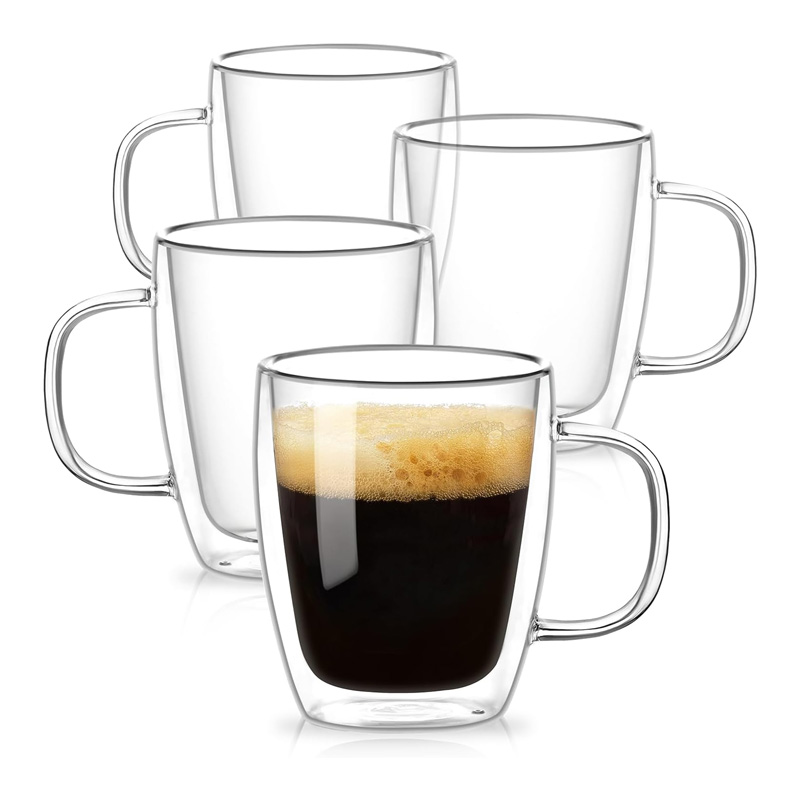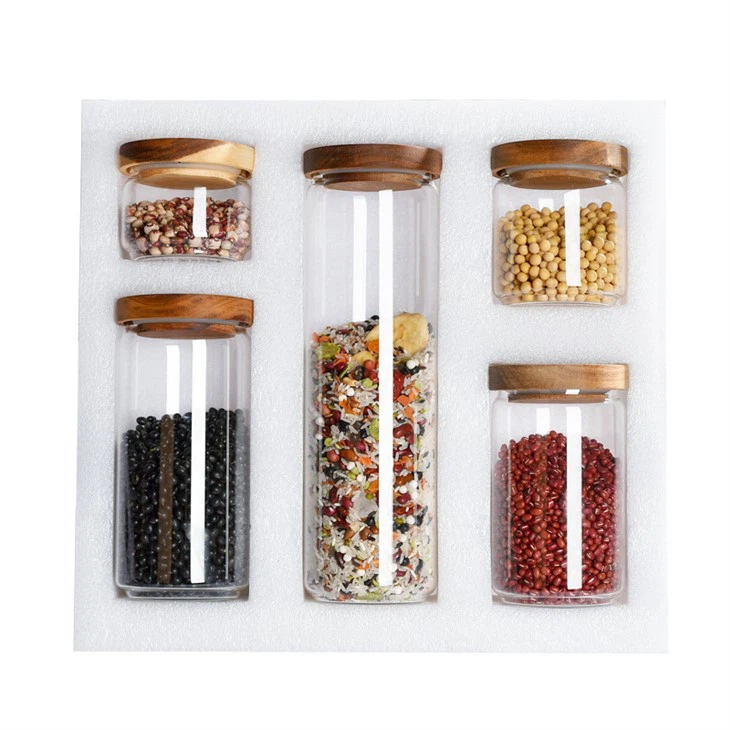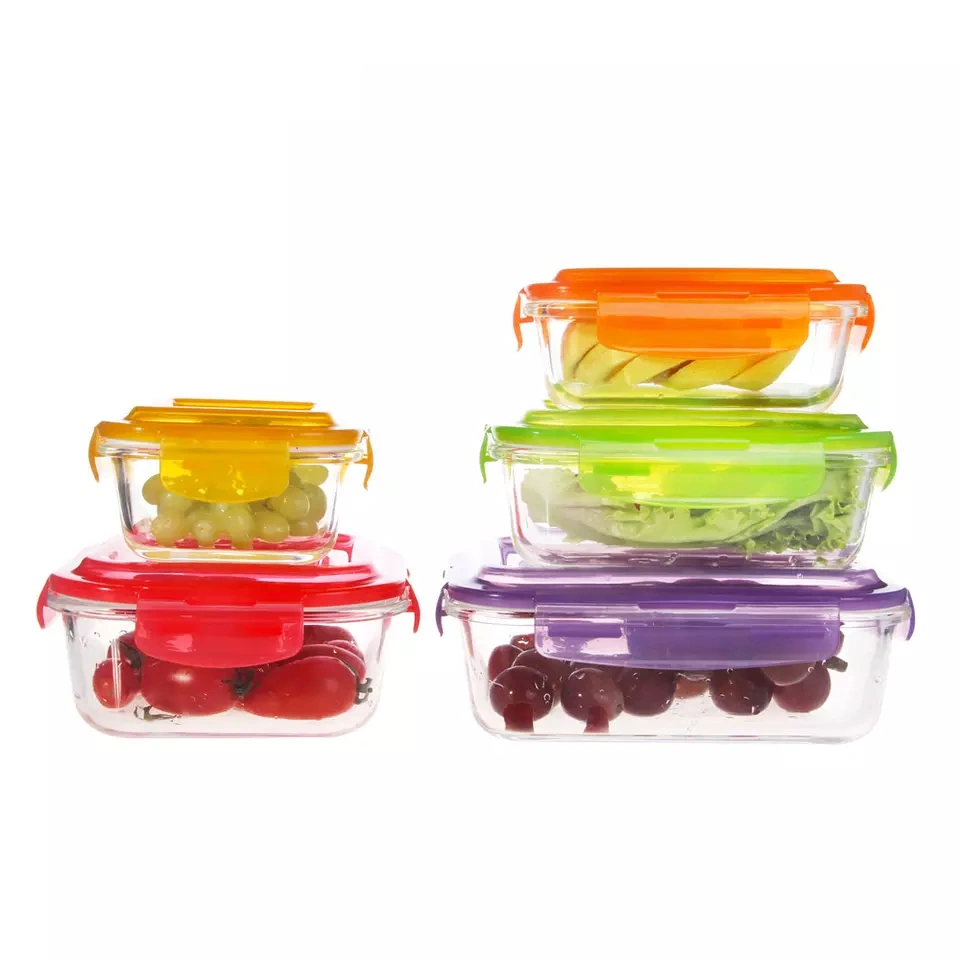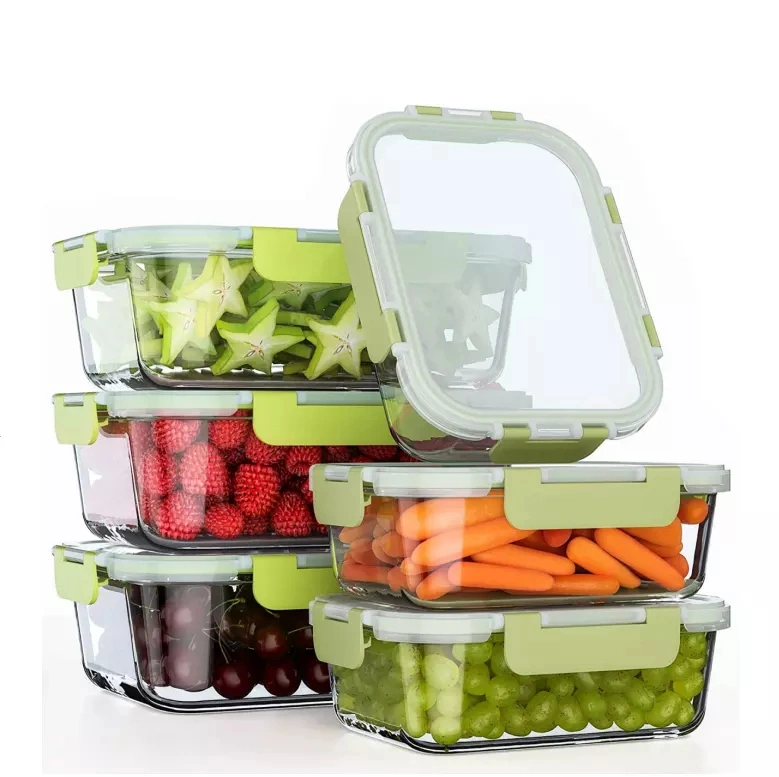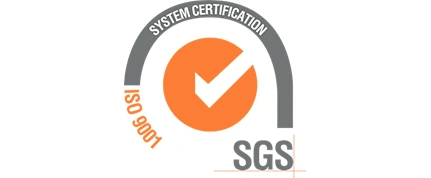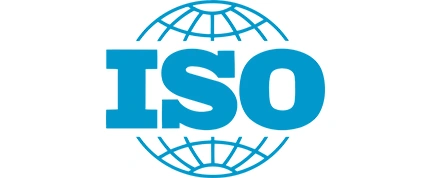Why Glass Food Containers Are the Best Eco-Friendly Storage Option
Table of Contents
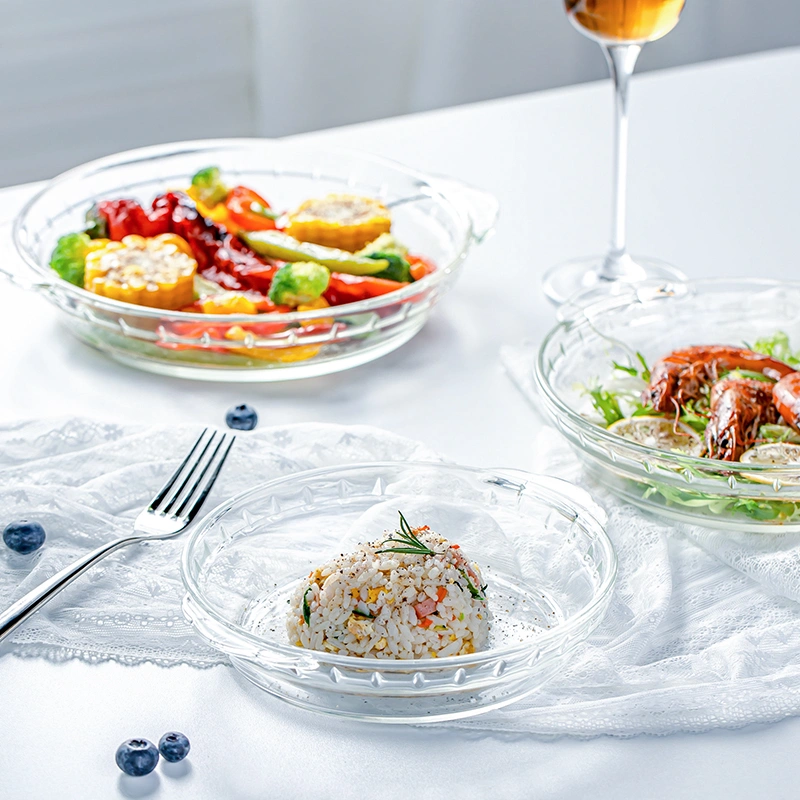
Durability and Reusability
Glass food containers have emerged as the superior eco-friendly storage option due to their exceptional durability and reusability. Unlike plastic containers, which degrade over time and leach harmful chemicals into food, glass is inert and does not react with its contents. This ensures the preservation of food quality and flavor, while eliminating the risk of contamination.
The durability of glass containers extends their lifespan significantly. They can withstand extreme temperatures, making them suitable for both freezing and microwaving. This versatility eliminates the need for multiple storage containers, reducing waste and clutter. Additionally, glass is resistant to scratches and stains, maintaining its pristine appearance even after repeated use.
Reusability is another key advantage of glass food containers. Unlike single-use plastic containers, glass containers can be washed and reused countless times. This significantly reduces the environmental impact associated with disposable packaging. By choosing glass, consumers can contribute to a circular economy, where materials are reused and recycled, minimizing waste and conserving resources.
Furthermore, glass is a non-porous material, preventing the absorption of odors and flavors. This ensures that food stored in glass containers retains its freshness and original taste. The transparency of glass also allows for easy identification of contents, eliminating the need for labeling and reducing waste.
In conclusion, glass food containers are the optimal eco-friendly storage option due to their exceptional durability, reusability, and inert nature. They preserve food quality, reduce waste, and contribute to a circular economy. By embracing glass food containers, consumers can make a positive impact on the environment while enjoying the benefits of safe, convenient, and sustainable food storage.
Health Benefits
In today’s environmentally conscious world, choosing sustainable storage solutions is paramount. Glass food containers emerge as the superior choice, offering numerous health and environmental benefits.
Unlike plastic containers, glass is inert and does not leach harmful chemicals into food. This ensures the purity and safety of your meals, protecting you from potential health risks associated with BPA and other toxins. Moreover, glass is non-porous, preventing the absorption of odors and stains, ensuring that your food remains fresh and flavorful.
Furthermore, glass is infinitely recyclable, making it an environmentally friendly option. Unlike plastic, which often ends up in landfills or oceans, glass can be repeatedly melted down and reused without losing its integrity. This significantly reduces waste and conserves natural resources.
The durability of glass is another key advantage. Unlike plastic containers that can crack or break easily, glass is highly resistant to breakage and can withstand extreme temperatures. This makes it ideal for storing both hot and cold foods, as well as for freezing and reheating.
In addition to its health and environmental benefits, glass food containers are also aesthetically pleasing. Their transparency allows you to easily identify the contents, and their sleek design complements any kitchen décor.
While glass containers may be slightly heavier than plastic, their durability and sustainability far outweigh this minor inconvenience. By choosing glass food containers, you not only protect your health and the environment but also invest in a long-lasting and stylish storage solution.
In conclusion, glass food containers are the clear choice for eco-friendly and healthy food storage. Their inert nature, non-porous surface, recyclability, durability, and aesthetic appeal make them the superior option for preserving the freshness and safety of your food while minimizing environmental impact. Embrace the benefits of glass and make a conscious choice towards a healthier and more sustainable lifestyle.
Environmental Sustainability
In the realm of environmental sustainability, the choice of food storage containers holds significant importance. Among the myriad options available, glass food containers emerge as the clear frontrunner, offering an array of benefits that make them the ideal eco-friendly storage solution.
Firstly, glass is an inert material that does not leach harmful chemicals into food, ensuring the preservation of its nutritional value and flavor. Unlike plastic containers, which can release toxins such as BPA and phthalates, glass remains chemically stable, safeguarding the health of consumers.
Moreover, glass is infinitely recyclable, making it a sustainable choice that reduces waste and conserves natural resources. Unlike single-use plastics, glass containers can be reused countless times without compromising their integrity. This significantly reduces the environmental impact associated with the production and disposal of disposable containers.
The durability of glass is another key advantage. Unlike plastic containers, which can crack or break easily, glass is highly resistant to breakage and can withstand extreme temperatures. This makes glass containers ideal for storing both hot and cold foods, as well as for freezing and reheating.
Furthermore, glass is non-porous, preventing the absorption of odors and stains. This ensures that food remains fresh and flavorful for longer periods, reducing food waste and the need for frequent cleaning. Additionally, glass containers are dishwasher safe, making them easy to clean and maintain.
In terms of aesthetics, glass containers offer a sleek and sophisticated look that complements any kitchen décor. Their transparency allows for easy identification of contents, eliminating the need for labeling. Glass containers also enhance the presentation of food, making them ideal for serving and entertaining.
While glass food containers may be slightly more expensive than plastic counterparts, their durability, reusability, and health benefits make them a worthwhile investment. By choosing glass food containers, consumers can contribute to a more sustainable future while ensuring the safety and quality of their food.
In conclusion, glass food containers are the superior eco-friendly storage option due to their inert nature, infinite recyclability, durability, non-porosity, ease of cleaning, and aesthetic appeal. By embracing glass food containers, consumers can make a positive impact on the environment while safeguarding their health and enjoying the benefits of sustainable food storage.
Cost-Effectiveness
In the realm of sustainable food storage, glass containers reign supreme as the most eco-friendly choice. Not only do they preserve the freshness and flavor of food, but they also offer significant cost-effective advantages over other storage options.
Unlike plastic containers, which can leach harmful chemicals into food and degrade over time, glass is inert and non-porous. This means that it does not absorb odors or flavors, ensuring that food remains pure and untainted. Moreover, glass containers are dishwasher-safe, making them easy to clean and reuse, eliminating the need for disposable plastic wrap or aluminum foil.
The durability of glass containers further contributes to their cost-effectiveness. Unlike plastic containers, which can crack or break easily, glass is highly resistant to damage. This means that glass containers can be used repeatedly for years, saving money on replacements.
Furthermore, glass containers are versatile and can be used for a wide range of storage needs. They are suitable for storing both hot and cold foods, making them ideal for leftovers, meal prep, and even freezing. Additionally, glass containers can be used to store non-food items such as spices, herbs, and other household goods.
While glass containers may initially cost more than plastic containers, their long-term cost-effectiveness is undeniable. By eliminating the need for disposable storage options and reducing the frequency of replacements, glass containers ultimately save money over time.
In addition to their cost-effective benefits, glass containers also contribute to a healthier and more sustainable lifestyle. They are free from harmful chemicals, ensuring that food is safe to consume. Moreover, glass is recyclable, reducing waste and promoting environmental conservation.
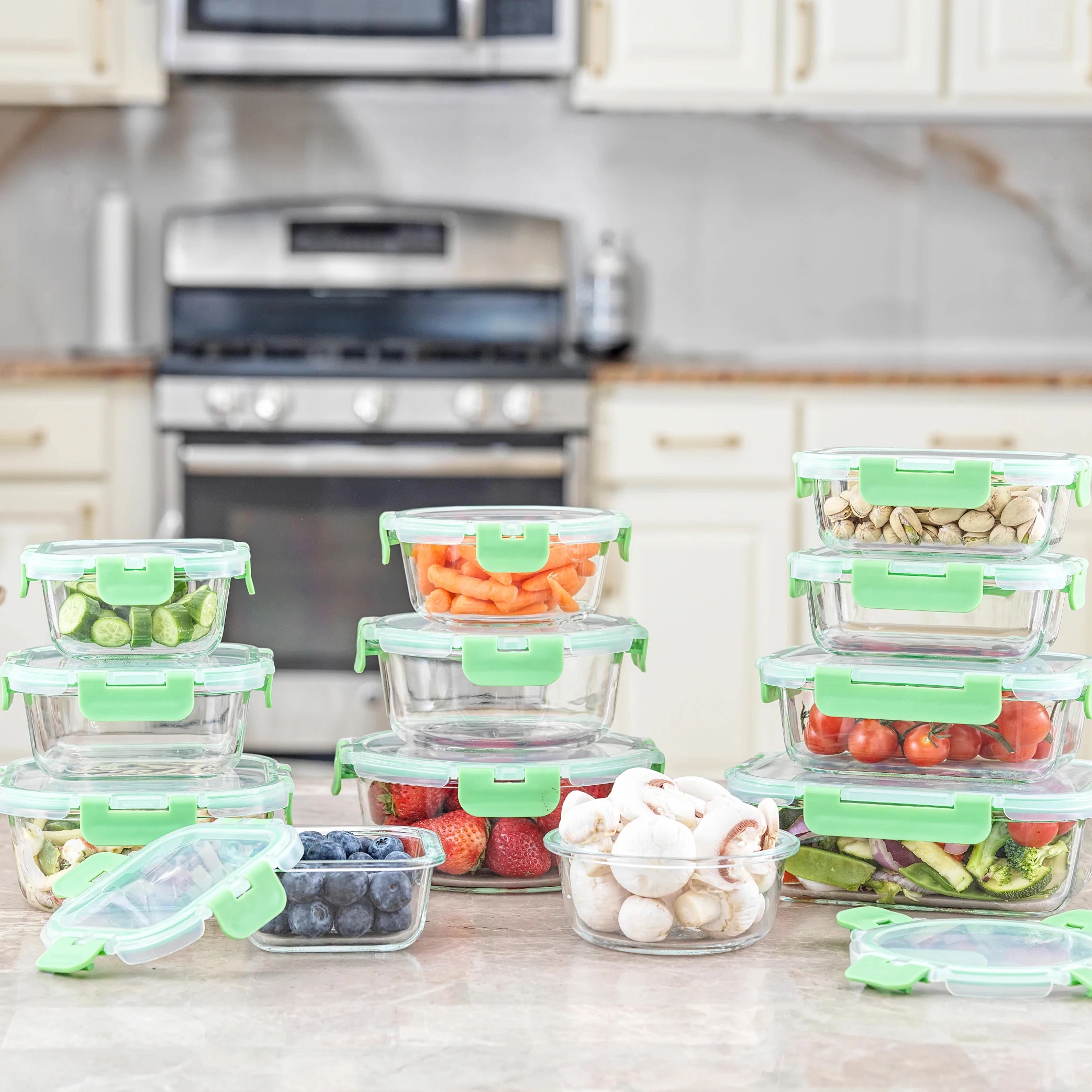
Conclusion
In conclusion, glass food containers are the best eco-friendly storage option due to their cost-effectiveness, durability, versatility, and health benefits. By investing in glass containers, consumers can not only reduce their environmental impact but also save money in the long run.
Newest Blog

Is Glass Safe In The Oven?
Whether you’re a home cook or a business owner sourcing from a glass lunch box factory, understanding the nuances of oven-safe glass is crucial. We’ll explore the world of durable and reliable custom glass food container options, ensuring you make informed decisions.

Can You Put Glass In The Oven?
We’ll explore why choosing the right type of glass, particularly from a reliable China glassware factory, is so important, especially if you’re looking for custom glass food storage containers or even a glass lunch box factory.
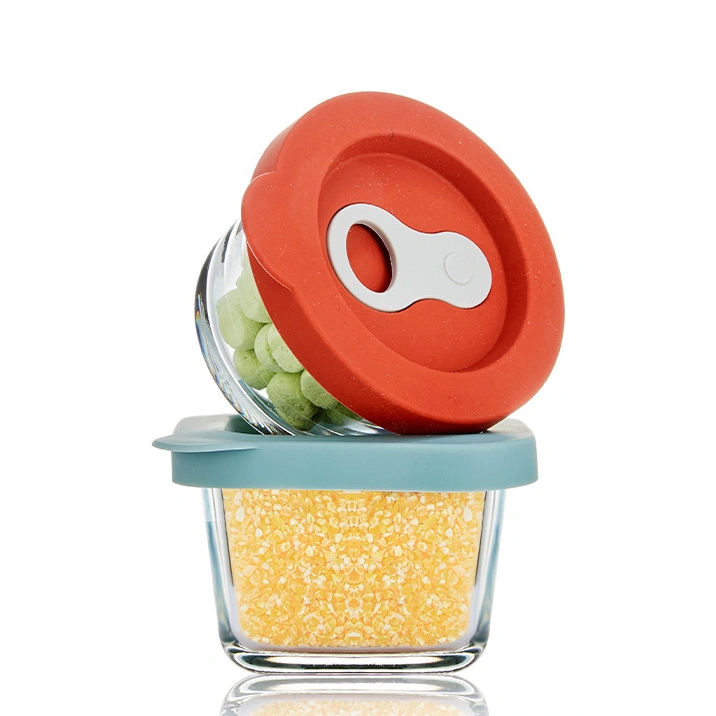
What To Do With Small Glass Containers?
From baby food meal prep, storing leftovers to organizing your craft supplies, small glass containers are super handy!

